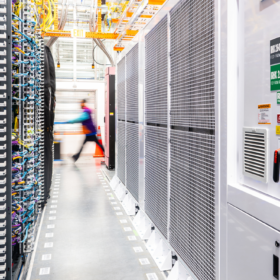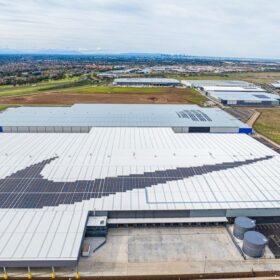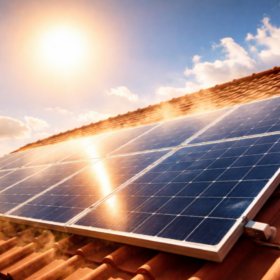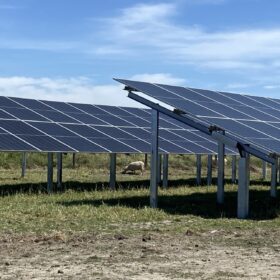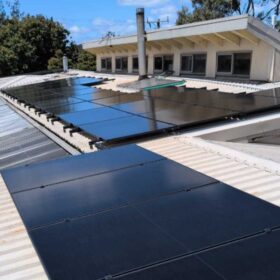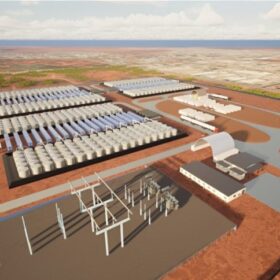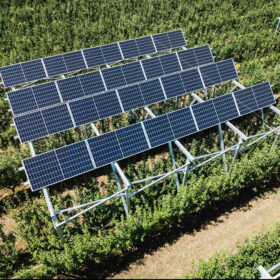Printed solar manufacturer lands $2.15 million grant
Kardinia Energy has received a federal grant worth $2.15 million to help scale production of its Newcastle-based printed solar technology.
Mandate 100% clean energy for data centre approvals proposed
An alliance of 11 major industry, environment and union groups have delivered a plan to the federal government that proposes data centre operators invest in 100% new renewable energy to power their operation, and also fund new energy workforce training.
Rooftop solar gets giant tick of approval from Nike
Sporting footwear and apparel giant Nike has unveiled a world-first rooftop solar “swoosh” with a 1 MW solar array now installed atop the company’s 60,000 square metre logistics facility in Victoria.
Global-warming-induced degradation could raise rooftop solar LCOE by up to 20%
A global study finds climate change will sharply increase high-temperature risks, accelerate degradation, and raise costs for rooftop PV, with economically disadvantaged regions hit hardest. Researchers warn current IEC standards underestimate future risks, urging urgent updates to avoid stranded assets and rising electricity costs.
Research reveals impact of agrivoltaics on soil properties
New research shows how agrivoltaic systems can reshape soil by altering moisture, temperature, and microbial activity, creating heterogeneous zones under and between panels. Proper design and management can boost soil health and crop resilience, especially in degraded or arid regions, though long-term effects remain uncertain.
Humelink West cuts diesel use with hybrid solar power system
Transgrid’s HumeLink West project is cutting diesel use to just one hour per day by using a hybrid solar power system at a substation site.
Grid constraints push data centres toward regional on-site, off-grid generation
Renewable energy land acquisition brokerage Rok Solid is seeing data centre operators increasingly move development to regional sites and choosing off-grid solutions such as gas and solar to counter metropolitan grid constraints.
How to combine mechanised farming with agrivoltaics
An international study finds that successful agrivoltaic projects require farm-specific, holistic co-design that integrates solar layout with agricultural mechanisation from the earliest planning stages. Without proper alignment between machinery, crops, and solar systems, agrivoltaics risk major land loss, lower field efficiency, and higher operating costs, undermining farm profitability.
Solar industry collaborators donate animal shelter clean energy system
Omnidian, GoodWe and AIKO have collaborated to install, donate and support long term, a 17 kW rooftop solar and 19.2 kWh battery storage system on an animal shelter in Victoria, and encourage industry to follow suit.
Driving on sunshine: Nissan wheels out solar-powered vehicle
The Ariya demonstration vehicle features 3.8 m² of Lightyear’s custom solar panels integrated across the hood, roof, and tailgate. Testing showed that the car could generate 0.5 kWh of solar energy during a 2‑hour, 80 kilometer trip, delivering up to 3 kilometres of range at no extra cost or charging time.

